Across China: Cafe Provides Haven for Hearing-Impaired in Central China
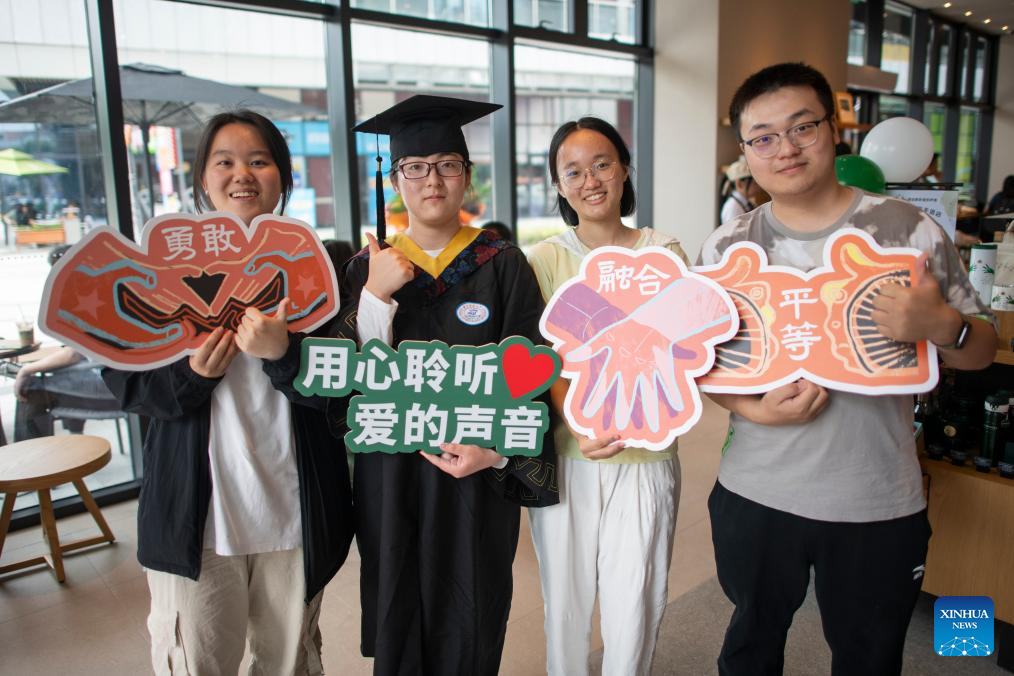 |
| Dou Lingyun (2nd L), a bio-engineering graduate from the Huazhong University of Science and Technology, poses for a group photo with classmates at a Starbucks cafe in Wuhan, central China's Hubei Province, June 18, 2024. [Xinhua/Wu Zhizun] |
WUHAN, July 3 (Xinhua) — "May I have a cup of vanilla latte please? Large." As the customer speaks, the sentence is converted by a voice-recognition system and appears on an electronic screen in the cafe. Receiving the message, barista Chen Yuanyuan soon produces a cup of coffee, which she hands over with a smile.
At first glance, this Starbucks in central China's Hubei Province could be any modern cafe anywhere in China. However, the receptionists and baristas here are hearing-impaired people, and the methods of communication have been adapted accordingly.
Last month, the 18th "silent" Starbucks cafe opened in Wuhan, capital of Hubei, five years after the first one of its kind went operational in Guangzhou, in the southern Guangdong Province. A total of three hearing-impaired baristas were recruited in Wuhan, including Chen.
"I always wanted to work in such a cafe in my hometown. Now my dream has come true," Chen, 42, told Xinhua in sign language.
She has always wanted to become a barista, but she was encouraged in her ambition by the arrival of the first "silent" Starbucks. "I realized that I could still be a barista even if I couldn't hear," she explained.
Chen started out as an apprentice in a Starbucks cafe, where she learned how to make coffee. It was a challenging job for someone with impaired hearing. For instance, a barista normally judges when the milk has been fully foamed by the sound made by the steam wand. However, Chen can only judge by sight and feeling the temperature with her hands.
"All the difficulties can be overcome so long as you love this career," she said.
The new "silent" Starbucks in Wuhan is located opposite the Wuhan Disabled Persons' Federation building. The cafe has wheelchair access, voice-recognition equipment, handwriting tablets and sign-language diagrams for various types of drink, all of which illustrate the venue's accommodating atmosphere.
"We want to make this cafe a window for society to understand 'special groups,' and a comfortable space for the hearing-impaired," said 26-year-old Guo Chenxi, owner of the cafe.
She noted that they also plan to have public sign-language lessons regularly, in order to build a bridge facilitating communication between hearing-impaired people and others.
After it opened, the cafe soon became popular. On the first day, the Xinhua reporter saw more than 10 customers in front of the cafe chatting with sign language, having arrived from different parts of the city.
"Many of us have had public coffee-making lessons organized by the Wuhan Disabled Persons' Federation," Liu Hua, a 48-year-old hearing-impaired customer told Xinhua by typing the words on his phone. "We also want to become baristas. So we came to have a look and learn."
Hu Huidong took some leave from his company to come with his younger brother, who is hearing-impaired. "This is the first 'silent cafe' in Wuhan, which is a platform for hearing-impaired baristas to show their talent. We would like to express our appreciation to them through our actions," he said.
Dou Lingyun, a bio-engineering graduate from the Huazhong University of Science and Technology, spent more than an hour getting to the cafe. "I used to be the chairman of the sign-language society at our university, and have been involved in several activities for disabled people," he said. "Now that I am leaving this city, I want to support friends who have hearing and speech impairments. I hope that they will get more understanding and help."
In China, there are about 85 million people with disabilities. During the 13th Five-Year Plan period (2016-2020), more than 50,000 students with disabilities got into institutions of higher learning, while an additional 1.81 million disabled people found jobs, according to official data.
In 2022, a three-year action plan for promoting the employment of disabled people was issued by the State Council, setting the goal of creating 1 million new jobs for the disabled by the end of 2024.
According to the China Disabled Persons' Federation, by the end of 2023, more than nine million people with disability certificates were employed, with about 544,000 people finding jobs last year. New industries and new models based on technological innovation have allowed them to work in more sectors.
"They are not only able to do such behind-the-scenes work as designers and customer-service agents, but are also getting more opportunities out front as baristas, roasters, delivery persons, among others," said Zhang Yong, who is head of the education and employment department of the Hubei Disabled Persons' Federation.
Chen Yuanyuan hopes that more stores and restaurants will appear that encourage the use of sign language. "In this way, people's understanding of the hearing-impaired can be boosted. With more job opportunities, we can realize our self-worth," she said.
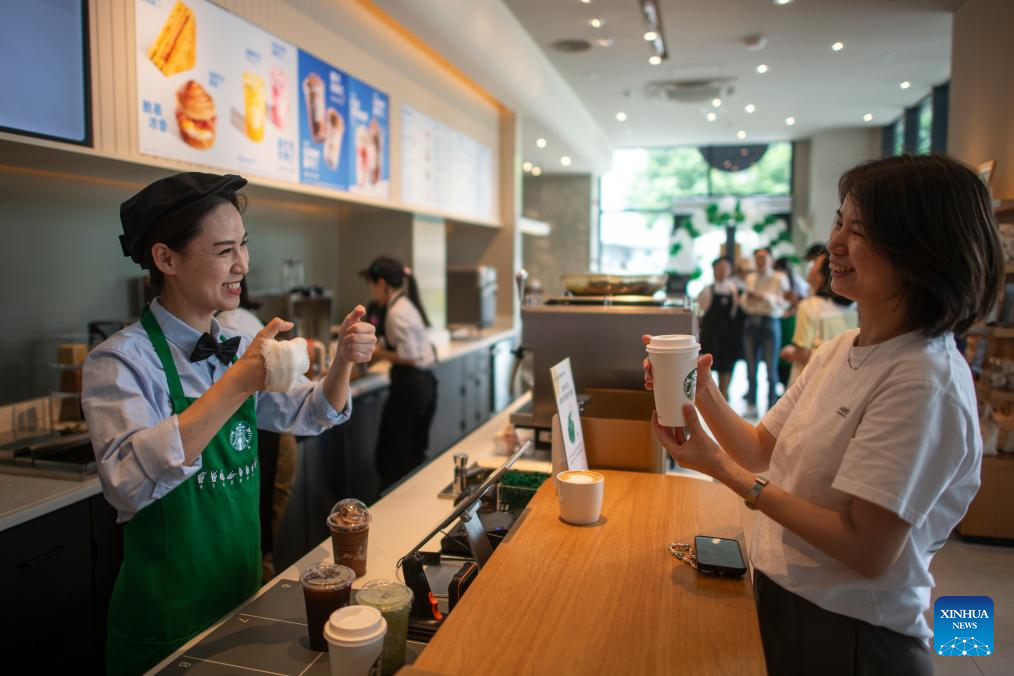 |
| A hearing-impaired barista communicates with a customer at a Starbucks cafe in Wuhan, central China's Hubei Province, June 18, 2024. [Xinhua/Wu Zhizun] |
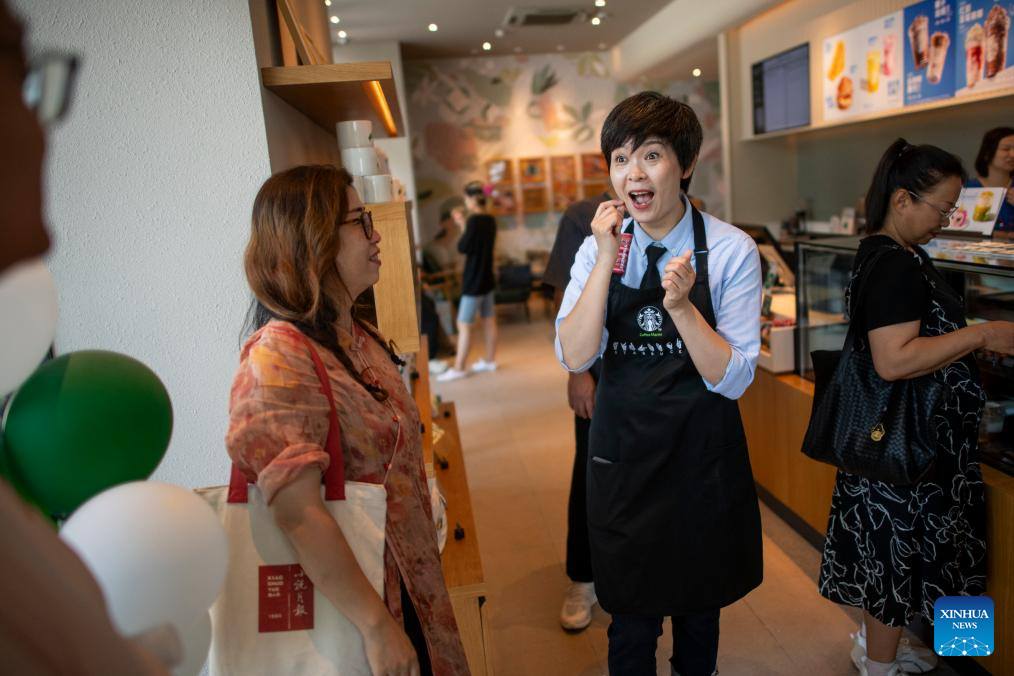 |
| Chen Yuanyuan (C) communicates with a hearing-impaired customer at a Starbucks cafe in Wuhan, central China's Hubei Province, June 16, 2024. [Xinhua/Wu Zhizun] |
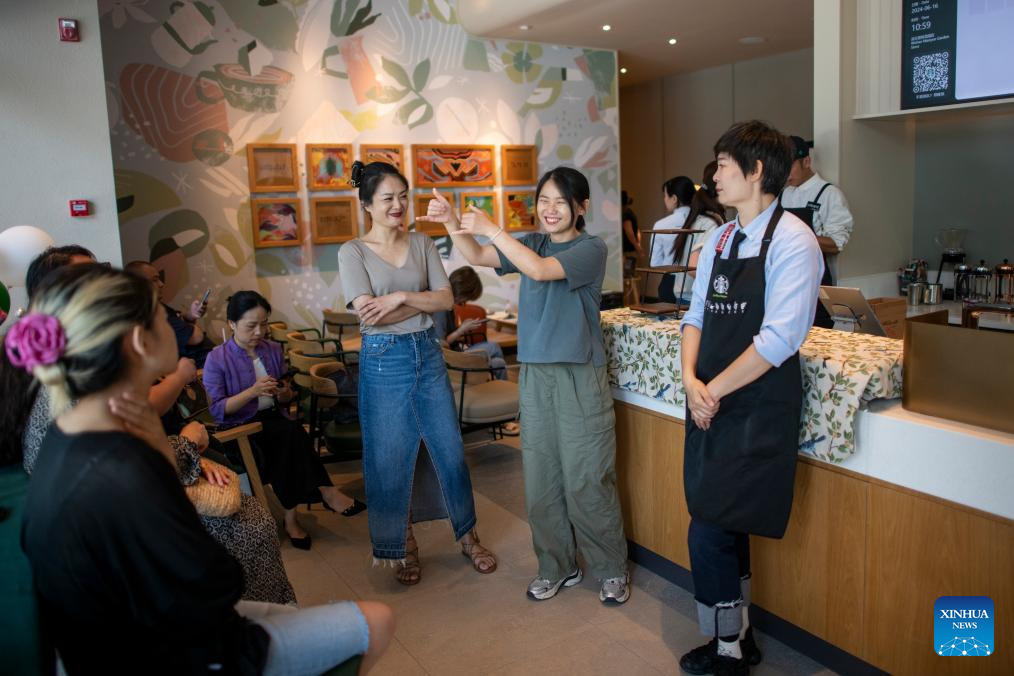 |
| Chen Yuanyuan (1st R) communicates with hearing-impaired customers at a Starbucks cafe in Wuhan, central China's Hubei Province, June 16, 2024. [Xinhua/Wu Zhizun] |
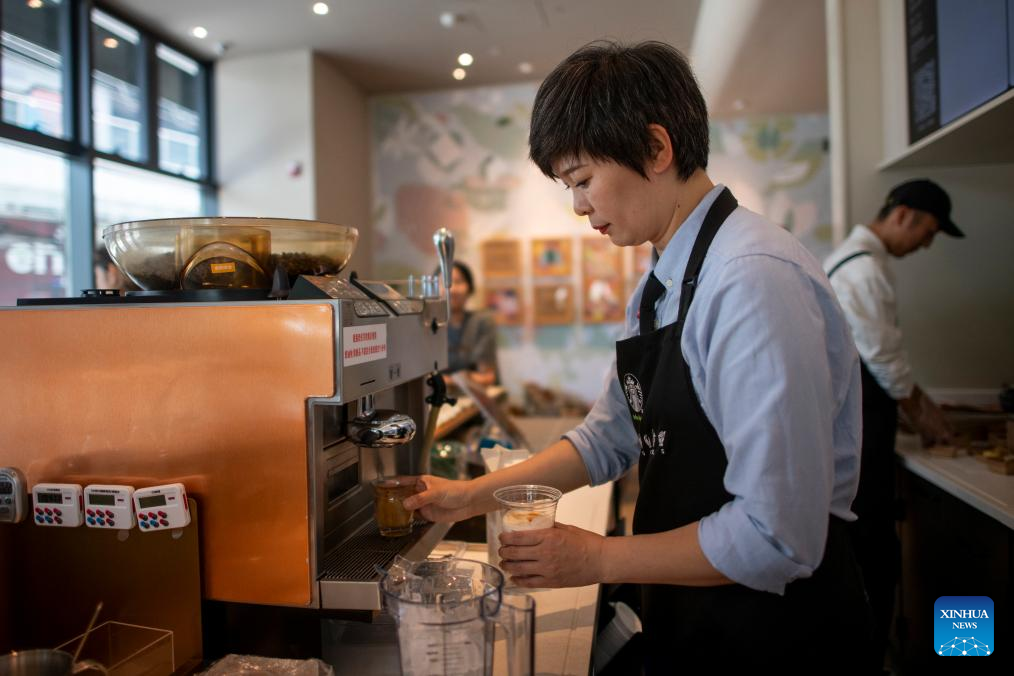 |
| Chen Yuanyuan makes coffee at a Starbucks cafe in Wuhan, central China's Hubei Province, June 16, 2024. [Xinhua/Wu Zhizun] |
(Source: Xinhua)
Editor: Lei Yang
Please understand that womenofchina.cn,a non-profit, information-communication website, cannot reach every writer before using articles and images. For copyright issues, please contact us by emailing: website@womenofchina.cn. The articles published and opinions expressed on this website represent the opinions of writers and are not necessarily shared by womenofchina.cn.

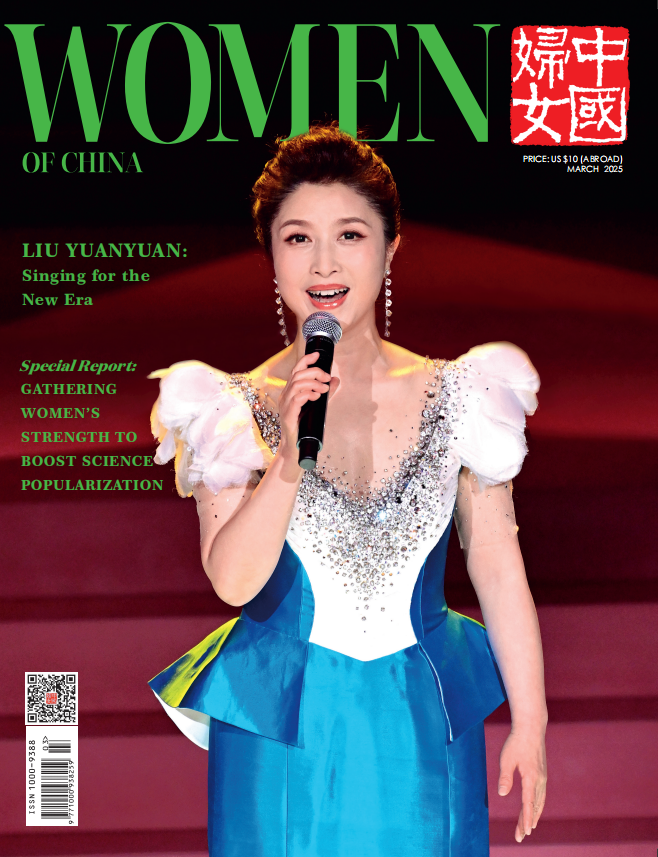






.jpg)

 WeChat
WeChat Weibo
Weibo 京公网安备 11010102004314号
京公网安备 11010102004314号